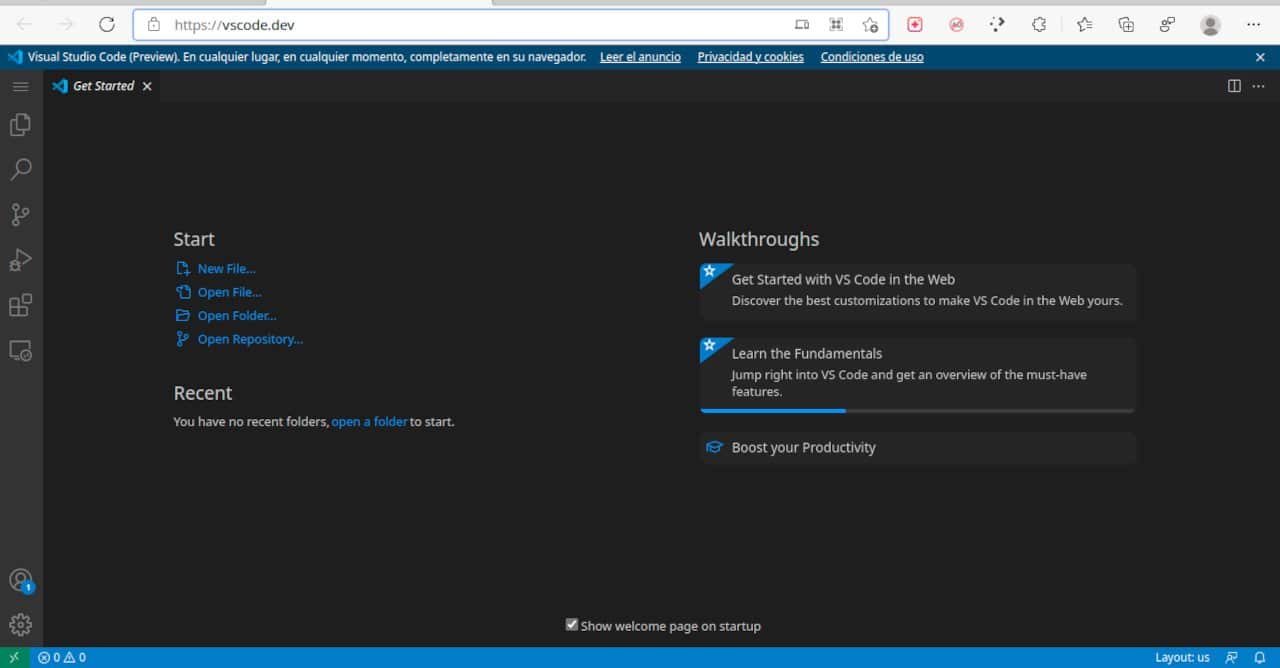
In eleven years as a blogger I had my percentage of errors and successes. I gave up technologies and distributions that are more current than ever today, but, I was right in betting on cloud services and devices like the Chromebook as the new paradigm of the industry.
In its obsession with not losing the leadership on the desktop, Microsoft did not realize that Apple and Google changed the rules of the game. The computer was no longer the center of computing activity, nor was the sale of licenses the business model. Cloud services, funded by advertising or subscription, and accessible from a tablet or phone, became increasingly popular.
Microsoft did the only sensible thing. It developed applications for the operating systems of its competitors, moved many of its most popular applications to the cloud and, it was after the conquest of independent programmers that it prospered with the new platform. One of the most notable decisions was to release an integrated development environment under an open source license. It was called VS Code.
VS Code for browsers
Continuing down that path just presented ua light version of US Code which runs completely in the browser. You just have to create a folder on the device from which you are accessing to save your work.
But, there is a catch. It only works completely with Chromium-based browsers (Edge, Google Chrome, Brave, Opera, Vivaldi…). In Firefox you will have to settle for working by opening individual files or connecting to an external repository.
This is because To access the user's device, the browser needs to implement the file system access API.
I was also unable to find an option to translate the user interface into our language.
VS Code features for browsers
What can you do with an integrated development environment that does not require installation? According to Microsoft:
- Creation and editing in the browser of storable files on the user's device.
- Preview using Markdown notation.
- Integration with browser debugging tools for creating client-side applications using HTML, CSS and Javascript.
- Program using low-resource machines or mobile devices.
- Synchronization between devices.
Limitations
A clarification. In this case We are not talking about a cloud service such as Microsoft 365. This is an application that runs completely in the browser. Hence it has some limitations with respect to the desktop version.
A very important one is that you cannot run programs from the terminal or run the debugger since there is no way that the browser has support for programming languages.
In general:
- Color code differentiation and autocompletion is available for most programming languages.
- Automatic typing or syntax error detection works great in Javascript, Python, and TypeScript.
- In the case of languages like JSON, HTML, CSS and LESS, the performance is almost similar to that of the desktop version.
- Although the list of extensions is the same as on the desktop, not all of them are available. Those that need to execute code in Node.js, that interact with specific modules of the operating system, or that launch locally installed programs, will be marked as not enabled. The ones that do work are the customization of the user interface, such as themes, keymaps and code snippets.
GitHub
It is clear that eMirosoft's goal is for programmers to use its services. Hence VS Code for the Web brings integrated GitHub repositories, code spaces, and pull request extensions. This makes it possible to do quick edits, review public relations, and continue working with a local copy or code space of GitHub to compile, run, and test your changes.
I will repeat what I always say when I comment on a Microsoft product. In the current state of the industry, it is in your interest to release open source licensed products, make them compatible with Linux, and offer them for free. When it stops suiting you, they will disappear. Meanwhile, if they serve us, it is best to take advantage of them.